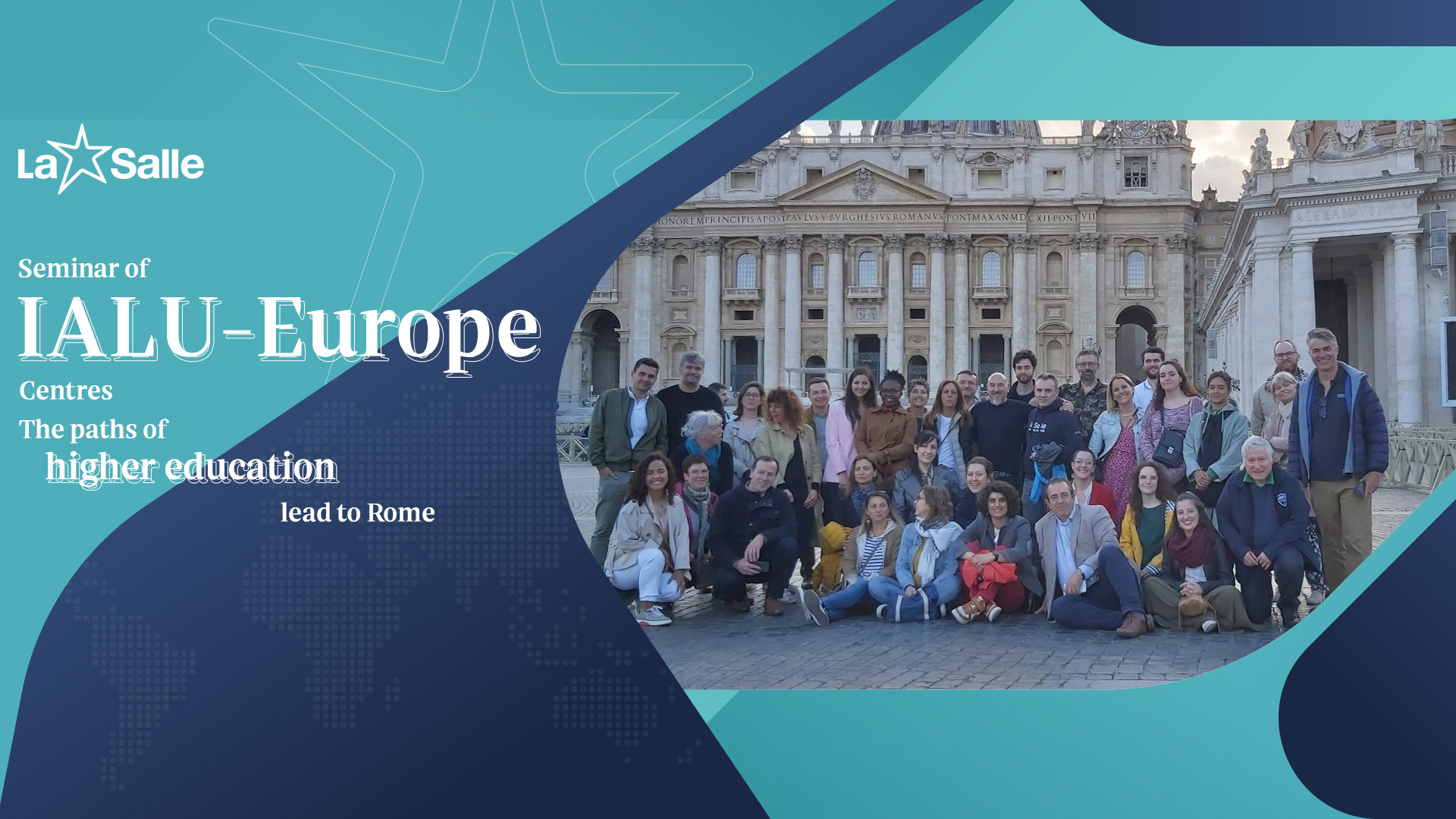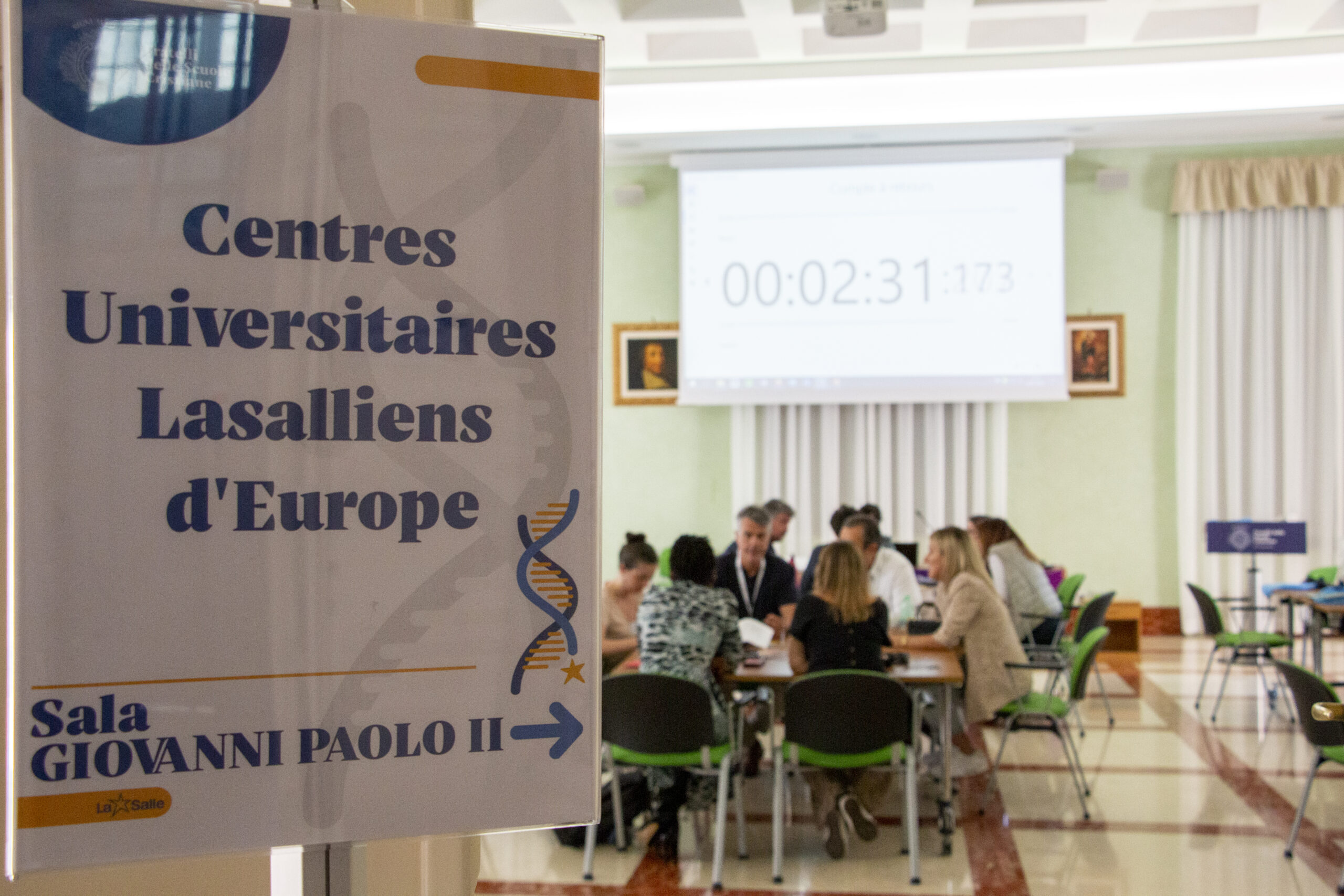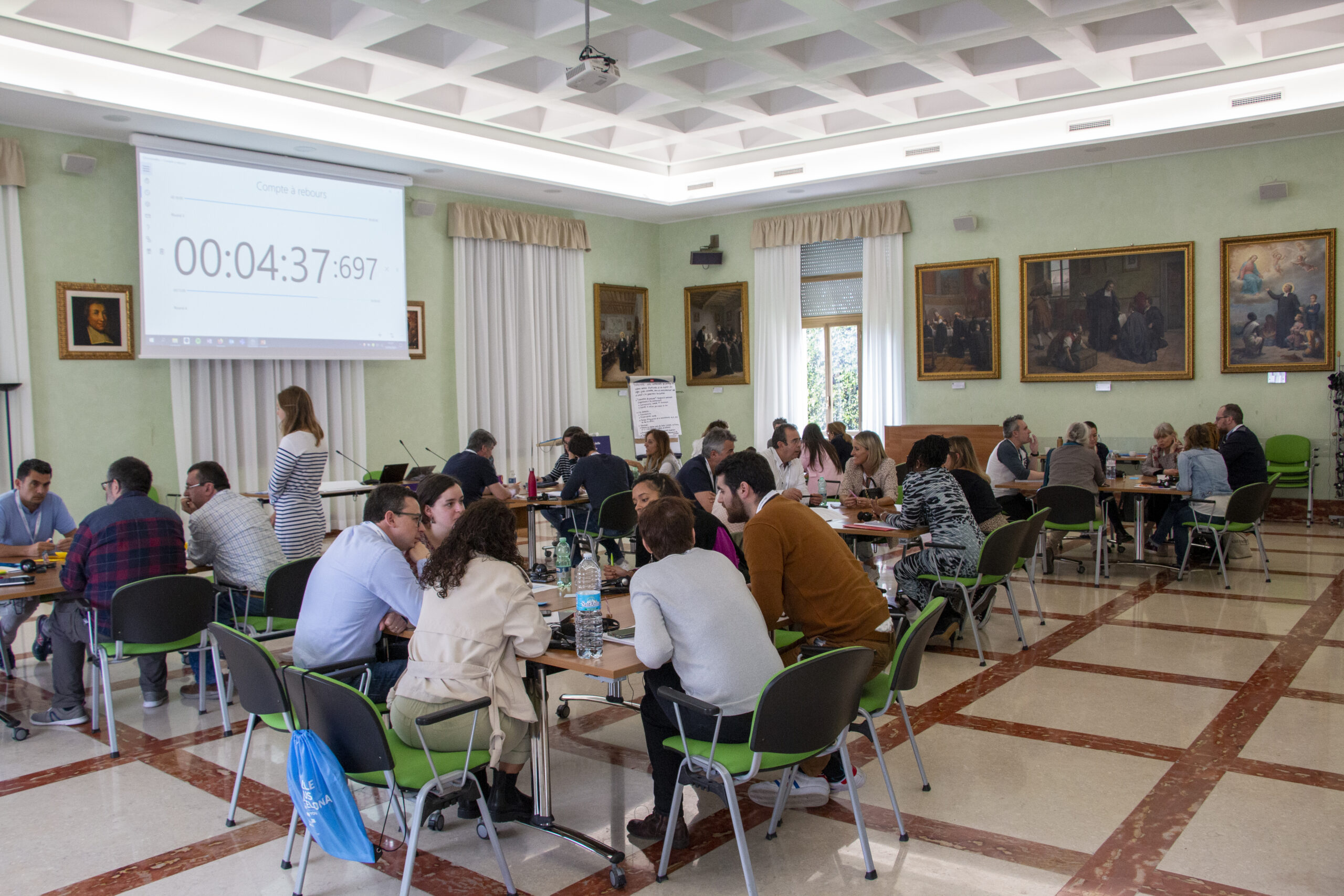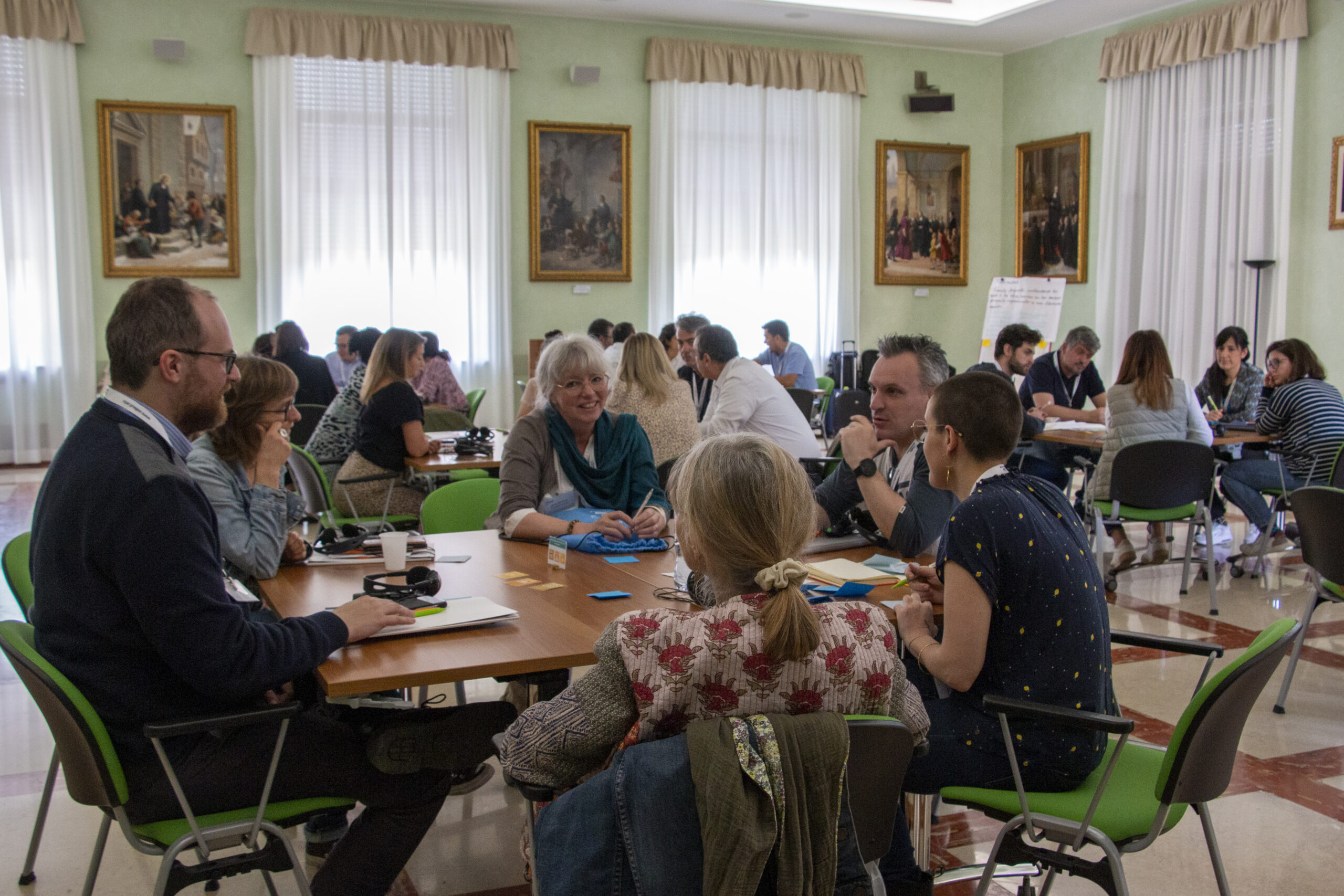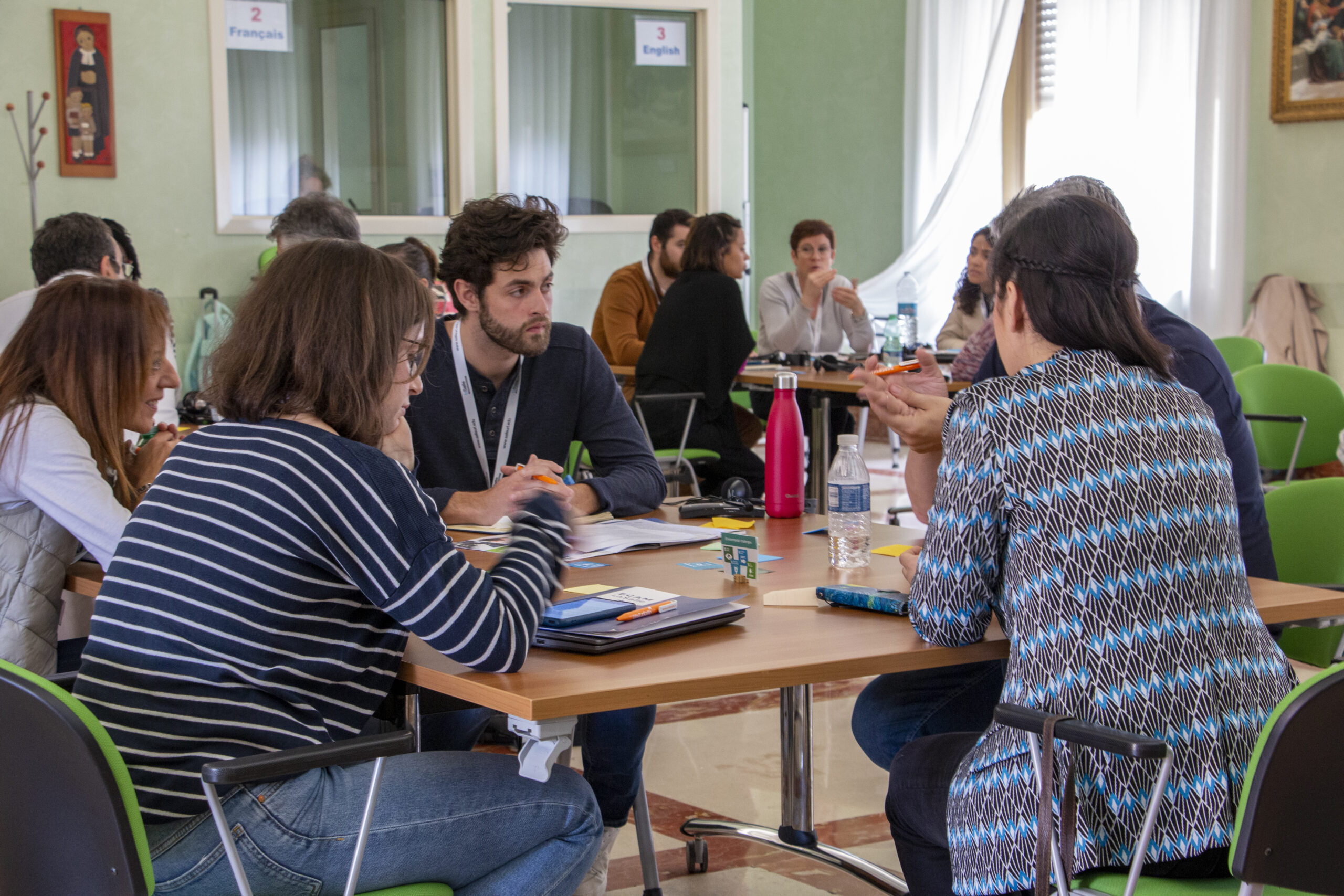The paths of higher education lead to Rome
It is now a well-established tradition: every year, professors, researchers, educational and administrative staff, working in Lasallian university centres in Europe, meet in Rome for a seminar on the Lasallian vision of higher education.
This year there were 35 participants from Madrid, Barcelona, Lyon, Beauvais, Rouen, Rennes, Amiens and Paris. For two days they discussed three topics:
- The current generation of students: their expectations, their learning styles, their relationship to the Lasallian vision.
- Fraternity in a Lasallian institution of higher education: a utopia, a project, a lived reality?
- The Lasallian approach to formation for integral development, which is now a central axis in our colleges and universities.
For the preparation of the first topic, each participant had met three or four students on the basis of a common interview grid. A workshop was held to share the results of these meetings, to note the similarities and differences between the centres, and to see to what extent the Lasallian project meets the expectations and can be adapted to the profile of current students.
A look at the emergence of the first Lasallian community around John Baptist de La Salle made it possible to give more precise content to the concept of fraternity. A workshop aimed to appreciate to what extent this concept is lived or can be lived today in our establishments. A large group discussion addressed the link between equality and fraternity, the place of fraternity in change management, and the tension between the fraternal and the functional dimensions.
Finally, two presentations introduced the work on training integral development. The first focused on a global approach in light of the perspectives of the UN and Pope Francis. The second presented the approach followed on the Madrid campus to “embark” the entire educational community towards a “campus for all” where ecological concerns are central. Working on the six Millennium goals using the “speed dating” method, it was possible to identify obstacles but also the means to be implemented in order to move towards a more responsible world in terms of environmental and social ecology, taking into account all the dimensions of the project for a more liveable and harmonious world.
The setting of the Generalate proved conducive to the discovery of the tercentenary, current and international character of the Lasallian adventure.
Of course, it is not possible to cover all the topics in two days. But to meet around a mission, to share knowledge and experiences in spite of the difference in language and culture, to live moments of conviviality, is a way of experiencing this richness which is part of the Lasallian DNA: a fraternal relationship incarnated in the “together and by association”.
Br. Jacques d’Huiteau

